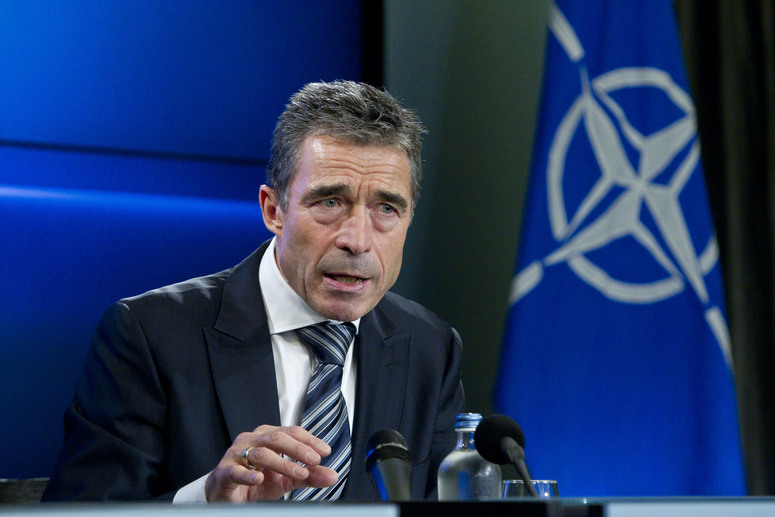
As NATO marks the 70th anniversary of its founding and the 20th anniversary of its expansion into formerly communist countries, it must do more than reflect on the past. To continue fulfilling its mission into the future, the Alliance must no longer allow the Kremlin to wield an effective veto over aspiring members’ accession – Anders Fogh Rasmussen, a former Secretary-General of North-Atlantic Treaty Alliance wrote in his article published in connection with the 70th anniversary of NATO’s founding and the 20th anniversary of its first expansion behind the former Iron Curtain.
In the article, NATO’s former chief speaks about Georgia and Ukraine and NATO’s Open Door Policy. The article reads as follows: Georgia and Ukraine continue to make significant progress toward meeting the criteria for NATO membership, under the assumption that they will indeed join the alliance one day. The prospect of an ever-closer relationship with NATO has provided an impetus for critical democratic and military reforms, and both countries now contribute regularly to NATO missions, more so even than many member states. Still, Georgia and Ukraine will need to undertake further reforms before they can meet the standards for full NATO membership.
Ukraine is now in the run-up to the second round of its presidential election, and Georgia is set to hold a parliamentary election next year. In both cases, these countries’ choices will decide their fortunes for years to come.
Given the stakes, NATO member states should move beyond offering warm words about the democratic will of the Georgian and Ukrainian people, and acknowledge the disruptive role that Kremlin paranoia is playing in the accession process. We should continue to extend our hand in peace to Putin’s Russia, provided it changes its behavior. But we must not condemn aspirant countries to an indefinite “deep freeze” just to appease a strategic adversary. The Kremlin’s aim is to hold these countries back until their progress toward reform starts to slip. We would be neglecting our duty if we allowed that to happen.
On the 70th anniversary of its founding, it is time for NATO to establish clear milestones for further integration. It could start by offering Ukraine an Enhanced Opportunities Partnership, such as what Sweden, Finland, and even Georgia already have. This would formalize Ukraine’s relationship with the alliance, and provide a stepping stone to a MAP and full accession.
At the same time, NATO members must increase the pressure (sanctions) on Russia to end the conflict in the Donbas region, as outlined in the 2014 Minsk Protocol, and withdraw from Abkhazia and South Ossetia. The Alliance must make clear that Russian territorial grabs will no longer be regarded as impediments to offering aspiring member states a path to formal accession.
Here, NATO could follow the model of Cyprus’s accession to the EU. Cyprus is a full member of the EU and the eurozone, but EU law has been suspended in the parts of the island that the Cypriot government does not control. Likewise, NATO could provide security guarantees for all of the territory still controlled by the Georgian and Ukrainian governments.
Why is this important? During a recent visit to the Donbas contact line – the front line between Ukrainian forces and Russia-backed militants in Ukraine – Ukrainian soldiers told me they were proud to be fighting for freedom and democracy not just for their country, but for all of Europe. If NATO is to continue fulfilling its political mission as it enters its eighth decade, it must honor those soldiers’ sacrifice by giving their country a clear path to membership.
Expanding NATO to include Ukraine and, eventually, Georgia was never going to be an easy decision to make. But it is a decision that should lie with current and aspiring member states, not with Russia. The longer we allow Putin’s interference to bear fruit, the more he will seek to undermine the sovereignty of democratic states.
Anders Fogh Rasmussen, a former NATO secretary-general and former Prime Minister of Denmark, is a foreign policy adviser to Ukrainian President Petro Poroshenko and Chairman of Rasmussen Global, a consultancy.





